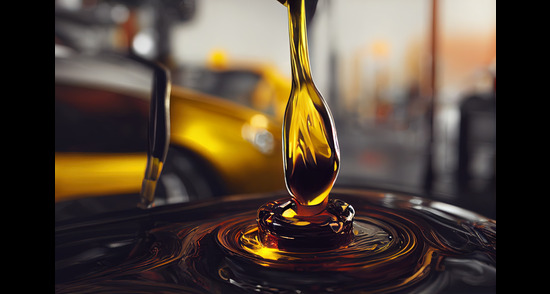Welcome to our comprehensive guide on the different types of engine oil! As car enthusiasts, we understand the importance of keeping your vehicle running smoothly and efficiently. While the engine may be the heart of your car, engine oil acts as its lifeblood, lubricating its intricate components and ensuring optimal performance.
In this article, we will delve into the fascinating world of engine oil, exploring its various types and shedding light on their impact on society. So fasten your seat belts and get ready to embark on an exciting journey!
Mineral Oil: The Reliable Workhorse
First on our list is mineral oil, the traditional and reliable workhorse of engine oils. Derived from crude oil, mineral oil undergoes a refining process to remove impurities and contaminants, resulting in a smooth and consistent lubricant. Here are some key characteristics of mineral oil:
Affordability: Mineral oil is often the most cost-effective option, making it a popular choice among car owners on a budget.
Adequate Performance: Mineral oil provides sufficient lubrication for standard engines, ensuring smooth operation and reduced friction.
Wide Availability: Mineral oil is readily accessible, with its production meeting the demands of car owners worldwide.
Synthetic Oil: Unleashing the Power of Science
Next, we have synthetic oil, a marvel of modern engineering that pushes the boundaries of lubrication technology. Unlike mineral oil, synthetic oil is artificially created through a complex chemical process, resulting in a superior product with enhanced performance. Let’s explore the advantages of synthetic oil:
Improved Engine Protection: Synthetic oil offers superior protection against engine wear, reducing friction and preventing damage to vital components.
Enhanced Temperature Stability: Synthetic oil can withstand extreme temperatures more effectively than mineral oil, ensuring optimal engine performance in both hot and cold conditions.
Extended Oil Change Intervals: Thanks to its superior stability, synthetic oil allows for longer intervals between oil changes, providing convenience and cost savings.
Semi-Synthetic Oil: The Best of Both Worlds
As the name suggests, semi-synthetic oil combines the desirable properties of mineral oil and synthetic oil, striking a balance between affordability and performance. Here’s why car owners often opt for semi-synthetic oil:
Cost-Effectiveness: While not as budget-friendly as mineral oil, semi-synthetic oil offers a more economical alternative to full synthetic oil.
Improved Performance: With its synthetic component, semi-synthetic oil provides enhanced engine protection and performance compared to mineral oil alone.
Versatility: Semi-synthetic oil is compatible with a wide range of engine types, making it a versatile choice for car owners with diverse vehicles.
High-Mileage Oil: Nurturing Aging Engines
As vehicles accumulate mileage, their engines may require extra care and attention. High-mileage oil is specifically designed to address the unique needs of older engines, offering the following benefits:
Engine Seal Conditioning: High-mileage oil contains additives that help condition and rejuvenate engine seals, reducing leaks and improving overall performance.
Reduced Oil Consumption: Older engines may consume more oil due to wear and tear. High-mileage oil helps combat this issue by reducing oil consumption and maintaining proper lubrication levels.
Enhanced Wear Protection: With added anti-wear agents, high-mileage oil provides an extra layer of protection for aging engine components, prolonging their lifespan.
Conclusion:
Understanding the different types of engine oil is crucial for every car enthusiast. From the reliable mineral oil to the high-performance synthetic oil and the versatile semi-synthetic oil, each type has its advantages and unique applications. Choosing the right engine oil for your vehicle not only ensures optimal performance but also contributes to the overall efficiency and longevity of your car’s engine. So, keep exploring the fascinating world of engine oil and stay informed about the latest advancements in lubrication technology. Remember, a well-oiled engine is a happy engine!



